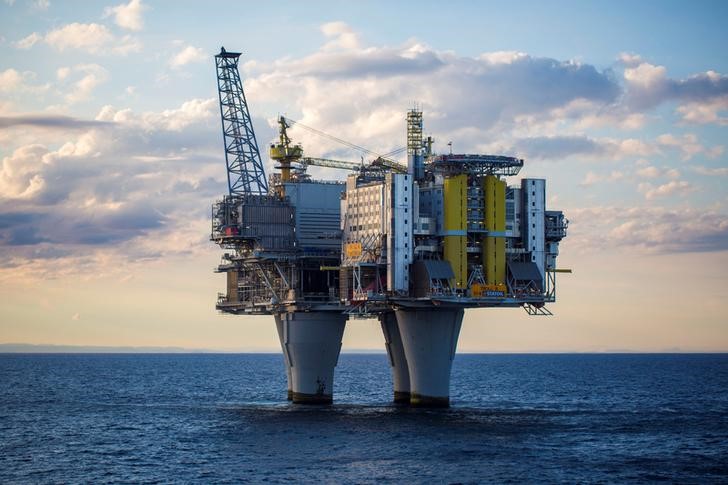By Peter Nurse
Investing.com -- Oil prices climbed Thursday, ending a gloomy week on a positive note as expectations of further supply tightness outweighed worries about a global economic slowdown.
By 9:20 AM ET (1320 GMT), U.S. crude futures traded 2.5% higher at $105.36 a barrel, while the Brent contract rose 2.4% to $111.64 a barrel.
U.S. Gasoline RBOB Futures were up 3.4% at $3.6565 a gallon.
Libya's National Oil Corporation declared force majeure on Thursday at the Es Sider and Ras Lanuf ports as well as the El Feel oilfield, adding to the force majeure already in effect at the ports of Brega and Zueitina.
This has resulted in production dropping sharply, with daily exports ranging between 365,000 and 409,000 barrels a day, a decrease of 865,000 barrels a day compared with production in "normal circumstances", NOC said.
Adding to this, a number of Norwegian offshore oil workers have elected to go on strike from July 5, likely halting about 4% of Norway's oil production.
At the same time, the chances of reviving the 2015 Iran nuclear deal appear to be small after indirect U.S.-Iranian talks in Doha that ended without progress, limiting the chances of Iranian oil returning to the global market any time soon.
That said, both benchmark contracts have seen selling for much of this week, ending the month on Thursday lower for the first time since November, amid concerns aggressive monetary tightening will limit economic activity, leading to crude demand destruction.
“There is a very real risk that we see a further deterioration in spending over the second half of the year,” said analysts at ING, in a note. “So for oil, it is clear that macro developments are still the key driver for price direction at the moment.”
The Organization of the Petroleum Exporting Countries and their allies including Russia, known as OPEC+, confirmed on Thursday the previously announced plan for modest output increases in August.
“Yesterday’s OPEC+ meeting was a relatively boring affair,” ING added. “However, the next meeting, which is scheduled for 3 August could be more interesting, given that President Biden is set to visit the Middle East in July. He will likely put pressure on producers in the region to increase output more aggressively.”
Of interest later in the session will be the Baker Hughes’ rig count and the CFTC’s net positioning data.
